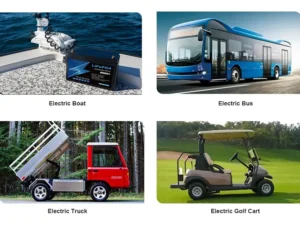Introduction:
Today, LiFePO4 (Lithium Iron Phosphate) battery pack has emerged as a revolutionary technology. It offers numerous advantages over traditional battery chemistries. As the demand for efficient energy grows, understanding the LiFePO4 battery packs becomes crucial. This comprehensive guide aims to delve into the various aspects of LiFePO4 battery. Its technology, composition, advantages, applications, and maintenance will also be explained.
Understanding LiFePO4 Chemistry

LiFePO4 batteries belong to the family of lithium-ion batteries. They come with a cathode material composed of lithium iron phosphate. This specific chemical composition provides several key benefits. It also makes LiFePO4 batteries stand out in the energy storage landscape.
-
Safety and Stability
One of the most significant advantages of LiFePO4 batteries. They have an enhanced safety profile. Unlike other lithium-ion batteries, LiFePO4 chemistry is inherently stable. It reduces the risk of thermal runaway or fire incidents. This makes them an ideal choice for applications where safety is a top priority.
-
Long Cycle Life
LiFePO4 batteries boast an impressive cycle life. They often exceed 2000 charge-discharge cycles. This longevity makes them a cost-effective solution for applications requiring frequent use. For example, electric vehicles (EVs) and renewable energy storage systems.
-
High Energy Density
LiFePO4 batteries have a slightly lower energy density compared to some others. They compensate for it with improved safety and longer cycle life. Advances in technology are continually increasing the energy density of LiFePO4 batteries. It is making them even more attractive for various applications.
Applications of LiFePO4 Battery Packs

LiFePO4 batteries find applications across a wide range of industries. This is due to their unique combination of safety, reliability, and performance. Some notable applications include:
Electric Vehicles (EVs):
LiFePO4 batteries are gaining popularity in the electric vehicle market. This is due to their safety features and long cycle life. EV manufacturers appreciate the stability and reliability of LiFePO4 battery packs. They provide consumers with a more secure and durable energy storage solution.
Renewable Energy Storage:
LiFePO4 batteries play a crucial role in storing energy. They are great for energy generated from renewable sources, such as solar and wind. Their ability to withstand frequent charge and discharge cycles makes a great choice. They are ideal for use in off-grid systems and as backup power sources.
Marine and RV Power Systems:
The safety and stability of LiFePO4 batteries suit marine and RV applications. Boaters and RV enthusiasts benefit from the long cycle life and high energy density. These batteries ensure a reliable power source for extended periods.
Consumer Electronics:
LiFePO4 batteries are also finding their way into various consumer electronics. They are particularly good in applications that prioritize safety and longevity. From power tools to portable devices, LiFePO4 technology is making waves. They are ruling the battery sector in the consumer market.
How to build a LiFePO4 battery pack?
Building a LiFePO4 battery pack involves several key steps. It is to ensure safety, efficiency, and reliability. Start by gathering LiFePO4 cells, a Battery Management System (BMS). Also, a suitable enclosure, and welding equipment. Arrange the cells in a series or parallel configuration. Consider the desired voltage and capacity before arranging. Weld the cells together with nickel strips, ensuring secure connections. Integrate the BMS to monitor and balance individual cell voltages. Place the assembled cells in the enclosure, providing proper ventilation.
How to charge LiFePO4 battery pack?
Charging a LiFePO4 battery pack involves several key considerations. This is for optimal performance and safety. Use a charger specifically designed for LiFePO4 chemistry to prevent overcharging. Ensure the charger’s voltage and current settings match the battery pack specifications. Implement a reliable Battery Management System (BMS) to monitor charging parameters. Charge the LiFePO4 battery in a well-ventilated area, avoiding extreme temperatures.
LiFePO4 batteries: Maintenance and Care
Proper maintenance is essential to ensure the optimal performance. It will also ensure the longevity of LiFePO4 battery packs. These batteries are known for their robustness. Adhering to a few guidelines can significantly extend their lifespan. Some of them are:
Avoid Deep Discharges:
LiFePO4 batteries perform best when they are not deeply discharged. They can handle deeper discharges compared to some other lithium-ion batteries. However, frequent deep cycling can still impact their overall lifespan. Implementing a battery management system (BMS) can help prevent over-discharging.
Temperature Management:
LiFePO4 batteries operate most efficiently within a specific temperature range. Extreme temperatures, both high and low, can affect performance and longevity. Implementing proper thermal management systems can mitigate temperature-related issues. For example, , such as cooling or heating can help.
Use Compatible Chargers:
Using chargers specifically designed for LiFePO4 batteries is crucial. These chargers are equipped with algorithms that optimize the charging process. They prevent overcharging and ensure a balanced charge across the cells.
Regular Inspections:
Periodic inspections of the battery pack are crucial. They include checking for physical damage and monitoring cell voltages. This can help identify potential issues before they escalate. Early detection allows for timely intervention, preventing damage to the battery pack.
Innovations and Advancements in LiFePO4 Technology

Energy Density Improvements
LiFePO4 technology has focused on increasing energy density. It does this without compromising safety or cycle life. Researchers and manufacturers are exploring new electrode materials and nanoengineering techniques. They are trying to further enhance the overall performance of LiFePO4 batteries. These innovations are crucial for meeting the growing demand for high-energy-density storage solutions. This will be great for electric vehicles and renewable energy applications.
Fast-Charging Capabilities
One notable challenge with lithium-ion batteries is the time required for charging. LiFePO4 batteries, however, have demonstrated promising fast-charging capabilities. As technology evolves, researchers are working to further optimize charging protocols. They are developing a charging infrastructure that supports rapid charging. That too without compromising the battery’s longevity. Fast-charging LiFePO4 batteries can significantly enhance the widespread adoption of electric vehicles.
Environmental Sustainability
Recyclability
LiFePO4 batteries are considered more environmentally friendly compared to other lithium-ion chemistries. The materials used in LiFePO4 batteries, including iron and phosphate, are abundant and non-toxic. Additionally, these batteries are easier to recycle. They reduce the environmental impact associated with battery disposal. As sustainability becomes a top priority, its recyclability makes it an attractive option. It works well for eco-conscious consumers and industries.
Reduced Dependency on Cobalt
Cobalt is a crucial component in many lithium-ion batteries. It is associated with environmental and ethical concerns due to mining practices in some regions. LiFePO4 batteries, on the other hand, contain no cobalt. So, mitigating concerns related to its scarcity and unethical sourcing is not a worry. This characteristic enhances the sustainability of LiFePO4 batteries. It also contributes to a more ethical and responsible supply chain.
Conclusion:
LiFePO4 battery packs have emerged as a reliable and sustainable energy storage solution. They offer a unique combination of safety, stability, and longevity. As technology continues to advance, LiFePO4 batteries are expected to play an increasingly vital role. They have an important role in shaping the future of energy storage.
Understanding the chemistry, applications, and maintenance requirements is vital. It will help businesses and individuals to harness the benefits of this innovative technology. They commit to safety, longevity, and efficiency. LiFePO4 batteries are thus paving the way for a greener and more sustainable energy.

